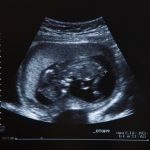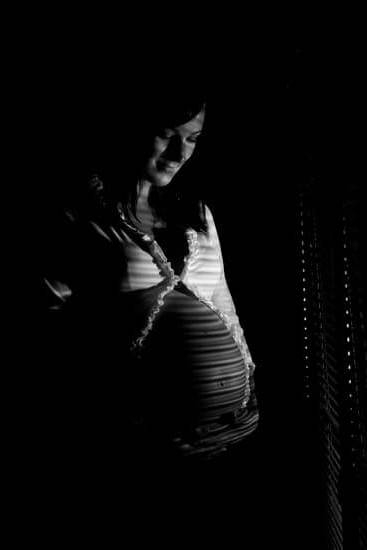When do signs of pregnancy start? Expectant mothers may wonder about the initial indications of pregnancy as they eagerly anticipate the arrival of a new life. Understanding these early symptoms can help individuals recognize the possibility of being pregnant and seek appropriate care and support. From missed periods to hormonal changes, there are several key factors to consider when exploring the onset of pregnancy signs.
The menstrual cycle plays a crucial role in determining when signs of pregnancy may begin to manifest. Tracking one’s cycle can provide insight into potential fertility windows and conception dates. By understanding how the menstrual cycle works, individuals can better pinpoint when their bodies might exhibit early indications of pregnancy, such as implantation bleeding and hormonal fluctuations.
Early signs of pregnancy often include missed periods, nausea, fatigue, and breast tenderness. These symptoms can vary from person to person, but experiencing a combination of these indicators may prompt individuals to consider taking a pregnancy test. It is essential to be aware of these signals and listen to one’s body for any changes that could signal the beginning stages of pregnancy.
Understanding the Menstrual Cycle
The menstrual cycle is a fundamental process in a woman’s body that plays a crucial role in determining when signs of pregnancy may start. Understanding how the menstrual cycle works can help individuals recognize the timing of potential pregnancy symptoms. Typically, the menstrual cycle is divided into two main phases: the follicular phase and the luteal phase.
During the follicular phase, which begins on the first day of menstruation, hormones such as estrogen begin to rise, stimulating the growth of follicles in the ovaries. Around ovulation, typically between days 12-16 of a 28-day cycle, an egg is released from one of the follicles and moves into the fallopian tube. This is the most fertile time for conception and when unprotected intercourse can lead to pregnancy.
Following ovulation, during the luteal phase, the empty follicle transforms into a structure called the corpus luteum, which produces progesterone to support a potential pregnancy. If fertilization occurs and implantation takes place around 6-12 days after ovulation, this hormonal shift can trigger early signs of pregnancy such as implantation bleeding or changes in basal body temperature. This understanding of how ovulation and hormonal changes correlate with pregnancy onset can provide insights into recognizing signs of pregnancy early on.
| Menstrual Phase | Main Hormones |
|---|---|
| Follicular Phase | Estrogen |
| Luteal Phase | Progesterone |
Early Signs of Pregnancy
During pregnancy, the body undergoes various changes that can manifest as early signs and symptoms, indicating the possibility of being pregnant. Many women wonder when do signs of pregnancy start, and one of the earliest indicators is a missed period. Typically, a missed period is a common sign that prompts women to consider pregnancy testing. However, it is important to note that certain factors other than pregnancy can also cause irregular menstruation.
Apart from missed periods, another early sign of pregnancy is nausea or morning sickness. Nausea can vary in severity from mild queasiness to persistent vomiting. This symptom is often triggered by hormonal changes in the body and can occur at any time of day, not just in the morning. Additionally, fatigue is another common early sign of pregnancy. The body expends more energy during early pregnancy due to the increased metabolic demands required for the developing fetus.
In addition to nausea and fatigue, many pregnant women experience breast tenderness as an early sign of pregnancy. Breast tenderness or sensitivity may be one of the first noticeable changes in breasts during pregnancy. The hormonal fluctuations in early pregnancy can lead to increased blood flow, causing breasts to feel fuller and more tender than usual. These early signs collectively serve as indicators for women to suspect they might be pregnant and consider taking a pregnancy test for confirmation.
| Early Sign | Significance |
|---|---|
| Missed Periods | A common indicator prompting women to consider pregnancy testing. |
| Nausea or Morning Sickness | Can range from mild queasiness to persistent vomiting due to hormonal changes. |
| Breast Tenderness | Increased blood flow causes breasts to feel fuller and more tender. |
Implantation Bleeding
Understanding Implantation Process
During the implantation process, the fertilized egg starts to burrow into the uterine lining, causing some blood vessels to rupture and resulting in the light bleeding known as implantation bleeding. This process marks a crucial moment in early pregnancy as it signifies successful embryo implantation and the beginning stages of pregnancy development. Some women may not experience implantation bleeding at all, while others may notice it as one of their first signs of pregnancy.
How to Differentiate Between Implantation Bleeding and Menstrual Period
It can sometimes be challenging to differentiate between implantation bleeding and a regular menstrual period since they may appear similar. However, implantation bleeding is typically shorter in duration, lighter in flow, and often accompanied by other early pregnancy symptoms such as breast tenderness or mild cramping. If you suspect you may be pregnant and are experiencing any unusual vaginal bleeding or spotting, it is recommended to consult with your healthcare provider for further evaluation.
Hormonal Changes
During pregnancy, hormonal changes play a crucial role in the various symptoms that women may experience. These changes occur as soon as conception takes place and continue throughout pregnancy. Here is how hormonal fluctuations can lead to the onset of pregnancy symptoms:
- Human Chorionic Gonadotropin (hCG): One of the earliest signs of pregnancy is the increased production of hCG hormone after implantation occurs. This hormone is what home pregnancy tests detect to confirm a pregnancy.
- Estrogen and Progesterone: These two hormones play a key role in maintaining a healthy pregnancy. The levels of estrogen and progesterone rise significantly during early pregnancy, leading to symptoms such as breast tenderness, fatigue, and mood swings.
- Thyroid Hormones: Pregnancy can also impact thyroid function due to hormonal changes. Some women may experience symptoms such as changes in appetite, weight gain or loss, or feeling excessively hot or cold.
As these hormonal changes take place within the body, they can trigger a range of symptoms that signal the beginning of pregnancy. It’s important for women to be aware of these potential signs and listen to their bodies when do signs of pregnancy start. If they suspect they are pregnant or have concerns about their symptoms, seeking medical advice is always recommended for proper guidance and care throughout this journey.
Taking a Pregnancy Test
When it comes to determining if you are pregnant, taking a pregnancy test is a crucial step. Understanding when to take a pregnancy test can help ensure accurate results and provide clarity during what can be an overwhelming time. Here are some key points to keep in mind:
- When to take a pregnancy test: The timing of when you take a pregnancy test is important for accurate results. It is recommended to wait until after you have missed your period before taking a test, as this allows for the hCG hormone (human chorionic gonadotropin) to be at detectable levels in your urine.
- How pregnancy tests work: Pregnancy tests detect the presence of hCG hormone in your urine or blood, which is produced once an embryo implants in the uterus. Home pregnancy tests are convenient and easy to use, typically providing results within minutes. It is essential to follow the instructions on the packaging carefully for accurate results.
- Types of pregnancy tests: There are different types of pregnancy tests available, including urine-based home tests and blood tests that can be done at a healthcare provider’s office. While both types are highly accurate, blood tests can detect lower levels of hCG earlier in pregnancy than urine-based tests.
Knowing when to take a pregnancy test and how they work can provide peace of mind and clarity during the early stages of possible pregnancy. If you have taken a test and received a positive result, it is advisable to seek confirmation from a healthcare professional through a blood test or ultrasound.
On the other hand, if the result is negative but you continue to experience symptoms of early pregnancy, it may be worth retesting after a few days or consulting with your healthcare provider for further evaluation and guidance.
Remember that experiencing signs such as nausea, fatigue, breast tenderness, or missed periods does not automatically confirm pregnancy as these symptoms can also occur due to various other reasons. Seeking medical advice from professionals like obstetricians/gynecologists or primary care physicians can help provide accurate information tailored to your individual situation and needs.
Seeking Medical Advice
Importance of Seeking Medical Advice
It is crucial for individuals who suspect they may be pregnant or are experiencing concerning symptoms to seek medical advice promptly. Consulting with healthcare professionals can provide clarity and guidance to anyone in this situation. Healthcare providers can offer support, answer questions, and conduct necessary tests to confirm pregnancy accurately. Additionally, if there are any underlying health issues or complications, early intervention can be key in ensuring the well-being of both the individual and the developing fetus.
When to See a Doctor
If someone is noticing signs of pregnancy such as missed periods, nausea, fatigue, or breast tenderness, it is advisable to schedule an appointment with a healthcare provider. Typically, it is recommended to see a doctor once these symptoms become apparent or if a home pregnancy test yields positive results. Early prenatal care is essential for monitoring the progress of the pregnancy and addressing any potential risks or concerns that may arise.
What to Expect During a Medical Evaluation
During a medical evaluation for possible pregnancy, healthcare professionals will conduct various tests to confirm pregnancy and assess the individual’s overall health. This may include urine or blood tests to detect the presence of human chorionic gonadotropin (hCG), a hormone produced during pregnancy. The initial consultation may also involve discussing medical history, lifestyle factors, and any current medications being taken. Based on the results of these tests and evaluations, healthcare providers can offer personalized advice and recommendations moving forward.
Conclusion
In conclusion, understanding when signs of pregnancy start can be a crucial factor for women who are trying to conceive or may have concerns about a possible pregnancy. While every individual is different and may experience symptoms at varying times, it is generally recommended to pay attention to early signs such as missed periods, nausea, fatigue, and breast tenderness. These indicators can often point towards the beginning stages of pregnancy.
It is important to recognize the role of hormonal changes in the body during pregnancy, which can further contribute to the onset of symptoms such as mood swings or increased urination. Additionally, implantation bleeding may occur around 6-12 days after conception, serving as another potential sign of early pregnancy. Seeking medical advice and taking a pregnancy test at the right time can provide accurate confirmation and guidance for individuals navigating this journey.
For those undergoing uncertainty or needing support during this time, reaching out to healthcare professionals or seeking resources from reputable sources can offer reassurance and valuable information. Remember that every pregnancy experience is unique, and it’s essential to prioritize self-care and seek assistance when needed. Stay informed, stay healthy, and trust your instincts when it comes to recognizing the signs of pregnancy.
Frequently Asked Questions
How Soon Can You Get Symptoms of Being Pregnant?
Symptoms of being pregnant can vary from woman to woman, but some may start experiencing them as early as one week after conception. These symptoms can include fatigue, nausea, breast tenderness, and frequent urination.
What Symptoms Do You Have at 1 Week Pregnant?
At 1 week pregnant, many women may not even be aware that they are pregnant yet since it is very early in the pregnancy. However, some common symptoms that may occur at this stage include implantation bleeding, mild cramping, and changes in cervical mucus.
How Early Can You Tell if You Are Pregnant?
It is possible to tell if you are pregnant as early as 7-10 days after ovulation with a sensitive home pregnancy test. Some women may also experience early pregnancy symptoms such as fatigue, breast tenderness, and nausea even before a missed period which can be an indicator of pregnancy.

Welcome to my fertility blog. This is a space where I will be sharing my experiences as I navigate through the world of fertility treatments, as well as provide information and resources about fertility and pregnancy.





